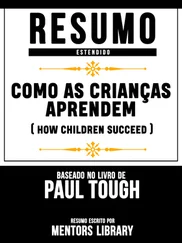Limitation of liability.Since a corporation is its own legal entity, incorporating gives you some protection against personal liability. In most cases, your personal assets cannot be seized to pay the corporation’s debts or legal judgments. If you are planning to work for direct clients or subcontract work to other translators, this alone can be a good motivation for incorporating.
Tax relief.Some corporate structures, such as S-corporations , can save you money on taxes, since an S-corporation’s profit is not subject to self-employment tax. Incorporating may also allow you to take more tax deductions than you do as a sole proprietor.
Capital.If you need to raise capital, for instance by taking out a business loan, it is often easier to do so if you are incorporated. However, so few translators take out business loans that this is not a major concern.
Expense.Depending on where you live, setting up a corporation may be extremely inexpensive or very expensive. For example, in some states it costs as little as 99 cents to file your Articles of Incorporation on-line, while in other states the fee may be much higher. Likewise, some states will require corporations to pay a filing fee for their required annual report, while others will not. Incorporating can also result in higher accounting expenses, since some corporation types must file payroll taxes every quarter.
Paperwork.Incorporating definitely requires extra paperwork. At the very least, you have to file Articles of Incorporation in your state, probably file a Trade Name Registration in your state and receive a Federal Employer Identification Number that you provide to clients instead of your personal Social Security number. If you hate doing accounting and don’t want to hire someone to do it for you, this is definitely a consideration!
If you would like to incorporate, there are various corporate structures to choose from, such as an S-corporation , C-corporation , or Limited Liability Corporation (LLC). Do some research on your own or talk to an accountant to determine which one is right for you.
Whether you incorporate or not, tax planning is a crucial element of being self-employed, and one that catches many people by surprise. When you have a full-time job, you accept the fact that some of your salary goes to taxes, but you usually don’t have to write out a check to the federal or state government for that amount. As a freelancer, you will be responsible for tracking and paying your taxes, normally done four times a year. If you are incorporated, you will probably have to pay payroll taxes, and if you are a sole proprietor you will probably have to file estimated taxes every quarter to avoid owing a large amount plus penalties at the end of the year.
The most important element of paying your own taxes is to meticulously keep track of your income and expenses. Whether you do this on your computer or on paper, it is imperative to write down the date and amount of every payment you receive and every purchase you make for your business, and to save all receipts. The amount of tax you will pay depends of course on how much you earn and your overall tax situation, but it is important to factor the additional tax you pay as a self-employed person into your projections. The self-employment tax, currently 15.3% of your net earnings from self-employment, consists of 12.4% of your income for Social Security, up to a maximum of $10,788.00, and 2.9% of your income for Medicare. The reason these taxes can come as a shock is that when you have a full-time job, your employer pays half of these taxes and you pay half; but when you’re self-employed, you pay the entire amount. Also keep in mind that you pay the self-employment tax in addition to regular income tax, not instead of it.
On the up side, as a self-employed person you have many more opportunities than your salaried friends to reduce your tax burden through deductible business expenses. Here again, it’s important to talk to an accountant or tax preparer to find out what is deductible in your particular situation. However, most self-employed translators can deduct home office expenses, computer hardware and software, Internet and phone costs, travel expenses, professional association memberships, continuing education, office supplies, business-related travel, professional journal subscriptions, books, dictionaries, and even meals out that are work-related. Following is an overview of the basic corporate entity types to consider; but note that these are regulated in the U.S. by individual states rather than at the federal level, so be sure to research the laws of the state you live in.
C-corporation.Many large businesses are C-corps, but small businesses can choose this structure as well. One of the major advantages of a C-corp is that it allows you to deduct 100% of your health insurance premiums as a business expense. C-corp profits below $50,000 are also taxed at a lower rate than a comparable amount of taxable income.
S-corporation.This is possibly the most popular structure for a one-person corporation. The main advantage of an S-corp is that as long as you pay yourself a “reasonable wage” (as defined by the IRS), you can pass some of the corporation’s income on to your individual tax return, which can avoid you having to pay self-employment tax on it. For example, if you have net income of $60,000 and pay yourself wages of $30,000 (which are subject to self-employment tax), you can then pass the additional $30,000 on to your individual tax return as profit, where it is subject only to regular income tax, not self-employment tax. One disadvantage of an S-corp is that all shareholders must be U.S. citizens or permanent residents; nonresident aliens cannot be S-corp shareholders.
Limited Liability Corporation.The “Single Member LLC” is probably the second most popular corporate structure for freelance translators. Like an S-corp, an LLC is a flow-through entity, allowing you to pass profits and losses on to your personal tax return. In addition, LLC owners may be nonresident aliens. In some states, LLCs have a limited duration, for example 30 years or less, so if you are incorporating early in your career, be sure to investigate this in your state.
Sole Proprietor.A self-employed person whose business is not incorporated is referred to as a sole proprietor. Being a sole proprietor has its advantages, including very little administrative overhead. In many states you do not even need a business license to operate as a sole proprietor, and all of your income is simply reported on Schedule C of your individual tax return. However, as a sole proprietor, you have no liability protection in the event of a lawsuit or financial claim—meaning that, at least in theory, your personal assets can be seized—and all of your income is subject to self-employment tax.
13 Beyond the basics of freelancing
13.1 Raising your rates
At some point in your translation career, you’ll realize that your translation experience or specializations can command higher rates than what you’re currently charging. Also, you might be interested in either earning more money or in working less, so you might need to charge more at some point.
Unfortunately, the answer to the question, “How do I get my existing clients to pay me more money?” is almost always, “You can’t.” Most often, the best way to raise your rates is to look for new, higher paying clients. For example, if you’ve worked for a translation agency for two years, making 12 cents a word, your client might be willing to go along with a rate increase to 14 cents a word, but it’s highly unlikely they’ll agree to pay 25 cents a word. In some easily outsourced language pairs such as English into Spanish, there may even be pressure on translators to decrease their rates over time. On the other hand, if you land a direct client who is used to paying 30 cents a word for translation through an agency, your offer of 25 cents a word may strike them as the best deal they’ve gotten all year. You simply have to eliminate your lowest paying clients and look for higher paying ones to replace them.
Читать дальше
![Коринн МакКей How to Succeed as a Freelance Translator [calibre 3.46.0] обложка книги](/books/402693/korinn-makkej-how-to-succeed-as-a-freelance-transl-cover.webp)


![Джон Ирвинг - Našlė vieneriems metams [calibre]](/books/384320/dzhon-irving-naŠle-vieneriems-metams-calibre-thumb.webp)
![Джонатан Димблби - Barbarossa - How Hitler Lost the War [calibre]](/books/385421/dzhonatan-dimblbi-barbarossa-how-hitler-lost-the-w-thumb.webp)







